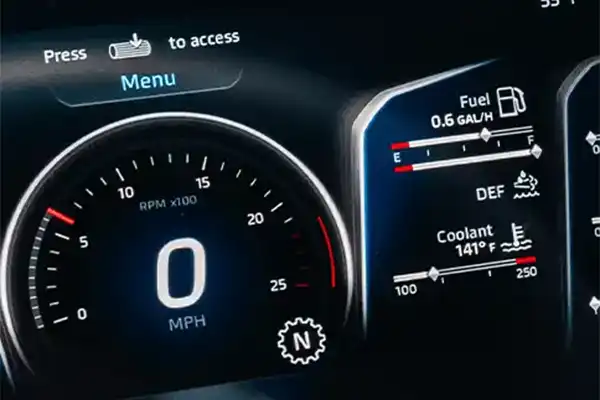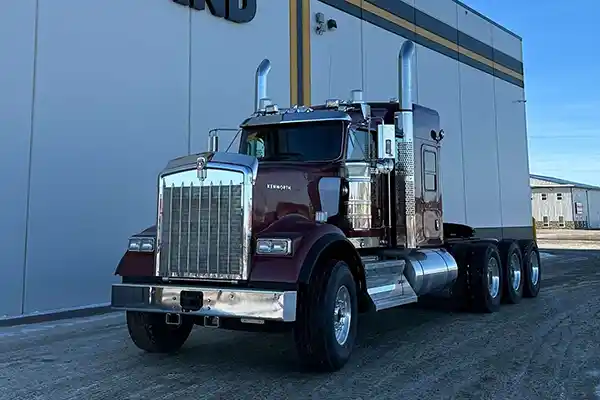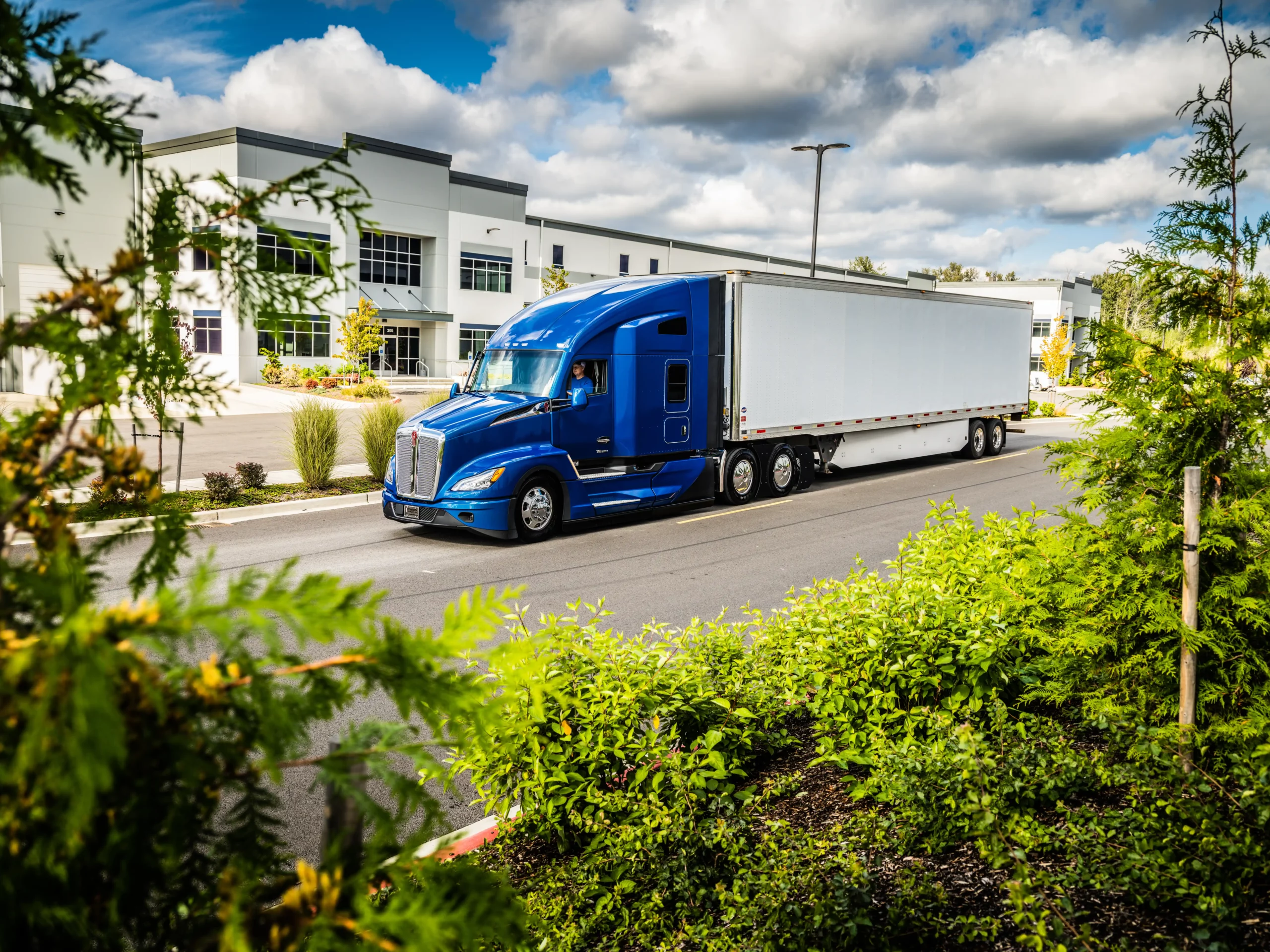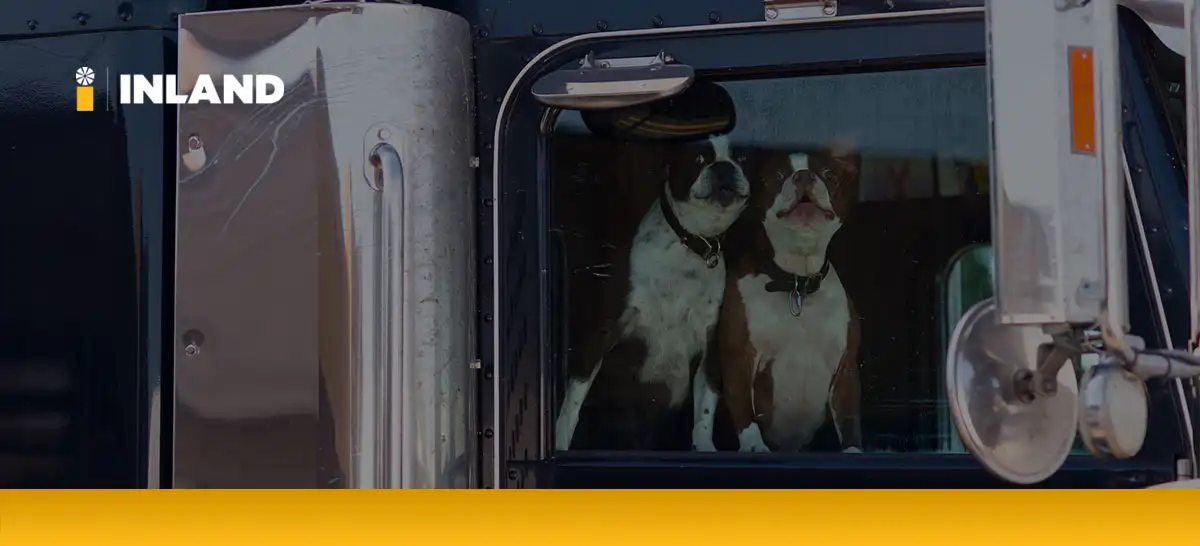
Life on the road can be lonely. Having a dog as a companion reduces stress and makes long hauls feel less isolated. Although the thought of bringing your pup along is exciting, it requires careful planning and consideration. Here’s what you need to know about truck driving with a dog.
Can Truck Drivers Bring Their Dogs?
The short answer is yes, but it depends on the company they work for and its policies. Many companies allow drivers to bring their furry friends, understanding that they have a positive impact on mental well-being. However, some companies enforce strict no-pet policies because of safety concerns, maintenance issues, or operational standards.
If you’re employed by a trucking company, check its specific pet policy. Some companies may allow dogs but impose certain conditions, such as:
- Limiting the presence of larger or certain breeds perceived as more disruptive or difficult to manage.
- Dog deposits or fees to cover potential damage or cleaning fees.
- Behavioral standards, requiring your dog to be well-trained and calm to avoid distractions while driving.
Owner-operators can decide if and how they travel with their dogs. But they should still make sure their setup is safe and comfortable for their companion.
Although no overarching federal laws prevent dogs from riding in commercial vehicles, you should be mindful of specific state laws and regulations regarding pets. For example, when crossing state lines, some states may require proof of vaccination. When you decide to bring your canine along, carry up-to-date vaccination records and health certificates.
Tips for Trucking With a Dog
Bringing your pup on your journey should be safe, comfortable, and enjoyable for both of you. Here’s how to achieve all three aspects.
1. Train Your Dog for the Road
Not all dogs are naturally accustomed to extended hours of travel in a confined space, so training yours for the rigors of trucking is essential. Before embarking (no pun intended) on a long haul, take your dog on shorter drives to acclimate them to the vehicle’s environment. You can also practice having your dog calmly wait for your command before exiting the vehicle to avoid dangerous situations on busy roads or at rest stops.
Lastly, consistent bathroom breaks are necessary, and your dog should understand where and when it’s OK to relieve themselves. Create a routine for stops every few hours and teach your dog to go on command.
2. Set up a Pet-Friendly Truck Cab
The inside of your rig will serve as a temporary home for your dog, so it’s important to make it comfortable:
- Provide a comfortable sleeping area: Set up a designated spot with a dog bed or blanket. This will help your dog relax and understand where to rest.
- Ensure ventilation and temperature control: Check that there’s good airflow and climate control. Some dogs are sensitive to extreme temperatures, and overheating can be dangerous.
3. Prioritize Safety
Your pup’s safety is paramount when trucking. Here are some tips to ensure a secure journey:
- Secure your dog: Equip your rig with a pet seat belt or harness that keeps your dog safe and secure. In case of sudden stops or sharp turns, this will prevent your dog from getting injured or distracting you.
- Close windows and use ventilation systems: It may be tempting to roll down the window for your dog to give them some fresh air. However, it’s safer to rely on air conditioning or controlled ventilation to avoid accidents or your dog attempting to jump out.
- Keep a collar and ID tags on your dog: In case of separation, having your dog’s identification easily visible is essential.
- Exercise safety during stops: When stopping for bathroom breaks, always use a leash and avoid overly crowded or dangerous areas.
4. Schedule Regular Pet Visits and Identify Pet Stores
If you’re traveling long-term, it’s a good idea to map out veterinary clinics in case of emergencies. Make time for routine vet visits and preventive care so your dog stays healthy. In case you run out of dog food or need additional supplies, knowing where to find pet stores will give you peace of mind.
5. Pack the Essentials
To keep your dog as comfortable as possible, bring a few key items:

- Food and water: Bring enough food for the trip and store it in an airtight container. Pack high-quality, easy-to-store kibble or dehydrated dog food you can prepare on the go. Fresh water is also a must. Additionally, avoid letting your pup drink from unsafe sources at rest stops.
- Cleaning supplies: Accidents can happen, so it’s important to have cleaning supplies on hand. Paper towels, waste bags, lint removers, and pet-safe cleaning products will help maintain cleanliness.
- Preventive medications: Regular medication for flea, tick, and heartworm prevention is crucial when traveling across different regions. Make sure your dog is up to date with preventive medications to avoid any health complications.
- Toys and chews: Bring durable toys to keep your companion occupied and stimulated while you drive.
Best Dogs for Truckers
Some breeds are better suited to the demands of long-distance travel than others because of their temperament, size, and energy level.
Bulldogs
Despite their strong and burly appearance, bulldogs are known for their calm and easygoing nature. They don’t require tons of exercise, which makes them content to ride shotgun without constantly needing to get out and run. Their relaxed attitude makes them a low-maintenance companion for long hauls, and they’re always up for a quick nap when you’re on the move.
Chihuahuas
Chihuahuas are perfect compact companions because they don’t need much exercise, so a quick walk at a rest stop should keep them happy. They are usually friendly and can form deep bonds with their owners, making them great company during those lengthy highway stretches. Despite their small size, Chihuahuas are alert and protective, which offers a sense of security on the road.
Shih Tzus
Shih Tzus typically have a calm demeanor and are content to sit quietly in the passenger seat during long drives. This breed is also known for being good with people, so they won’t be a hassle when you stop at pet-friendly motels or rest areas. Their relatively low exercise needs and easygoing personalities make them a stress-free option for long hauls.
Dachshunds
Dachshunds are undeniably adorable with their short legs and elongated bodies. These low-maintenance pups don’t require much grooming and exercise, making them easy to care for while you’re on the road. Dachshunds have an independent spirit, so they won’t demand constant attention, but they’ll be there to offer companionship when needed.
Miniature Schnauzers
Miniature schnauzers are fantastic companions thanks to their intelligent, loyal, and adaptable nature. Their moderate energy levels mean they enjoy short exercise breaks but are satisfied relaxing during prolonged drives.
This breed has a hypoallergenic coat, so there’ll be less fur to clean up — and less sneezing and runny noses, if you’re prone to allergies. Miniature schnauzers are also highly trainable and alert, constantly keeping you company and, possibly, on your toes.
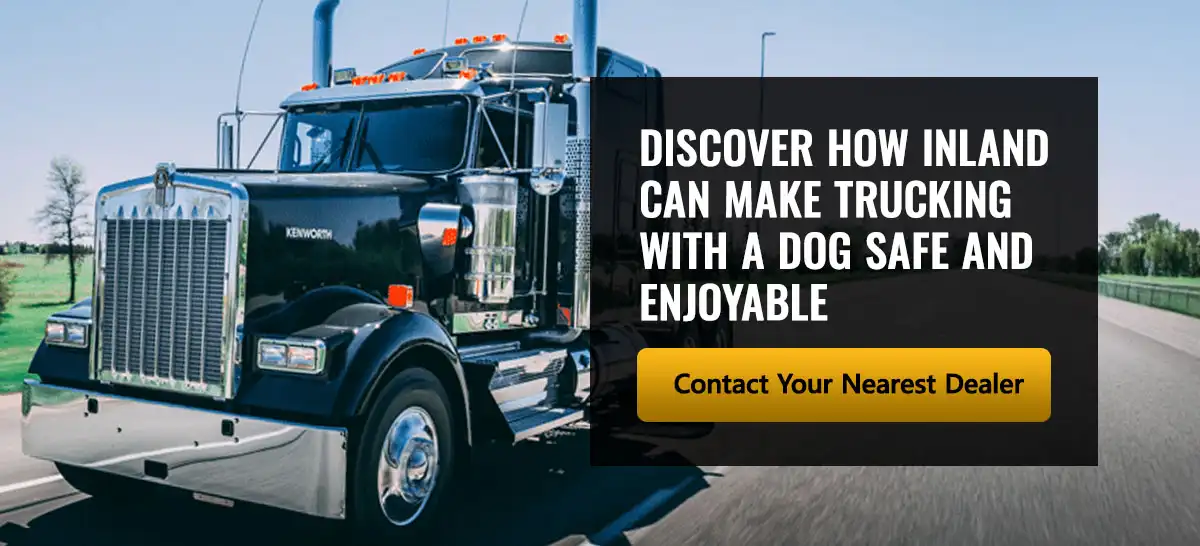
Discover How Inland Can Make Trucking With a Dog Safe and Enjoyable
For over 70 years, Inland has provided the world’s best lineup of Kenworth trucks to drivers across western Canada. If you’re traveling with your dog, our trucks are designed to keep both of you comfortable, safe, and ready for the road ahead.
Our vehicles are equipped with advanced driver assistance systems and predictive cruise control, which helps reduce driver fatigue and allows you to focus on the road while your companion relaxes. The spacious, quiet, and ergonomically designed cabins create an ideal environment to drive comfortably while giving your dog plenty of space to stretch out.
Contact your nearest dealership today to learn how our rigs can transform your journey with your dog into a safe and pleasant experience.

